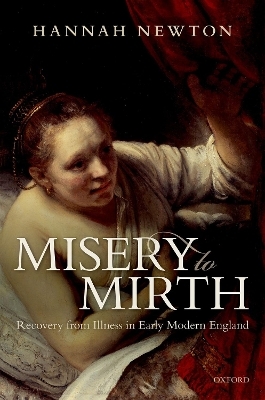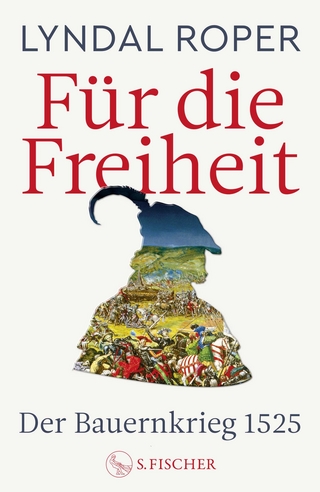
Misery to Mirth
Oxford University Press (Verlag)
978-0-19-877902-5 (ISBN)
This is an open access title available under the terms of a CC BY-NC-ND 4.0 International licence. It is free to read at Oxford Scholarship Online and offered as a free PDF download from OUP and selected open access locations.
The history of early modern medicine often makes for depressing reading. It implies that people fell ill, took ineffective remedies, and died. Misery to Mirth seeks to rebalance and brighten our overall picture of early modern health by focusing on the neglected subject of recovery from illness in England, c.1580-1720.
Drawing on an array of archival and printed materials, Misery to Mirth shows that recovery did exist conceptually at this time, and that it was a widely reported phenomenon. The book takes three main perspectives: the first is physiological or medical, asking what doctors and laypeople meant by recovery, and how they thought it occurred. This includes a discussion of convalescent care, a special branch of medicine designed to restore strength to the fragile body after illness. Secondly, the book adopts the viewpoint of patients themselves: it investigates how they reacted to escape from death, the abatement of pain and suffering, and the return to normal life and work. The third perspective concerns the patient's loved ones; it shows that family and friends usually shared the feelings of patients, undergoing a dramatic transformation from anguish to elation. Through these discussions, the volume shines a light on some of the most profound, as well as the more prosaic, aspects of early modern existence, from attitudes to life and death, to details of what convalescents ate for supper and wore in bed.
Hannah Newton is a social and cultural historian of early modern England, specialising in the histories of medicine, emotion, and childhood. Her first book, The Sick Child in Early Modern England (OUP, 2012), won the European Association for the History of Medicine and Health Book Prize in 2015 . In 2011-2014, Hannah undertook a Wellcome Trust Fellowship at the University of Cambridge where she researched the present monograph, Misery to Mirth: Recovery from Illness in Early Modern England. Hannah is now a Wellcome University Award Holder at Reading University, where she is investigating the sights, sounds, smells, tastes, and tactile sensations of the early modern sickchamber.
Introduction
Part One: Medical Understandings
1: 'Nature Concocts and Expels': Defeating Disease
2: 'She Sleeps Well & Eats an Egg': Restoring Strength
Part Two: Personal Experiences
3: 'O, How Sweet is Ease!': Feeling Better
4: 'A Double Delight': Thanking God
5: 'Pluck't from the Pit': Escaping Death
6: 'All is Returned': Resuming Life
Conclusion
| Erscheinungsdatum | 18.06.2018 |
|---|---|
| Zusatzinfo | black and white figures/illustrations |
| Verlagsort | Oxford |
| Sprache | englisch |
| Maße | 164 x 242 mm |
| Gewicht | 592 g |
| Themenwelt | Geisteswissenschaften ► Archäologie |
| Geschichte ► Allgemeine Geschichte ► Neuzeit (bis 1918) | |
| Geisteswissenschaften ► Geschichte ► Regional- / Ländergeschichte | |
| Geschichte ► Teilgebiete der Geschichte ► Kulturgeschichte | |
| Studium ► Querschnittsbereiche ► Geschichte / Ethik der Medizin | |
| ISBN-10 | 0-19-877902-X / 019877902X |
| ISBN-13 | 978-0-19-877902-5 / 9780198779025 |
| Zustand | Neuware |
| Informationen gemäß Produktsicherheitsverordnung (GPSR) | |
| Haben Sie eine Frage zum Produkt? |
aus dem Bereich


